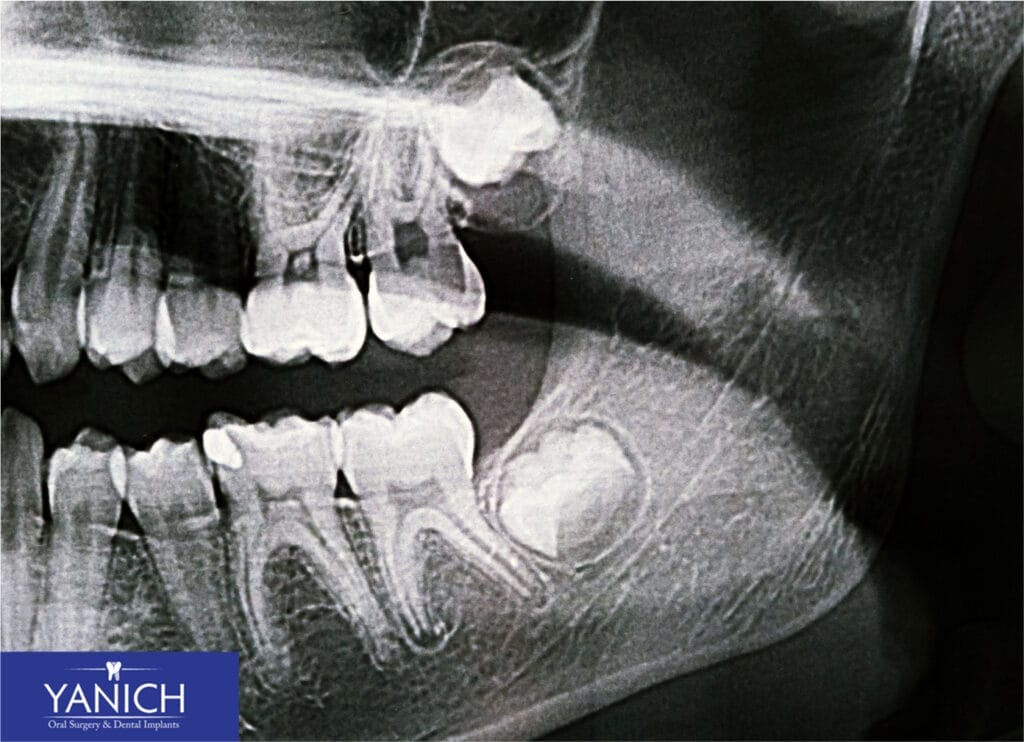Those pesky third molars—better known as wisdom teeth—have quite the reputation. If you’re like most of my patients, you’ve probably heard stories from friends or family about their wisdom teeth extractions. Maybe they described chipmunk cheeks, eating nothing but ice cream for days, or some other dental war story that left you wondering: “Do I really need to have mine removed?”
It’s a great question, and the answer isn’t as straightforward as you might think. Despite what seems like a universal rite of passage into adulthood, not everyone needs their wisdom teeth removed. Let’s explore when you might be able to keep these late bloomers and when it’s best to say goodbye.
Why Do We Have Wisdom Teeth Anyway?
Before diving into whether they should stay or go, let’s understand why wisdom teeth exist in the first place.
Wisdom teeth typically emerge between ages 17-25—hence the name “wisdom” teeth, as they appear during our supposedly wiser years. These third molars were incredibly useful to our ancestors, who had different diets consisting of tough, uncooked foods that required additional grinding power. They also helped replace teeth that were commonly lost due to wear and tear.
Fast forward to today, and our diets have changed dramatically. We eat softer, cooked foods and have better dental hygiene. Plus, our jaws have generally evolved to be smaller, leaving less room for these extra molars. That’s why wisdom teeth often cause problems—they’re trying to fit into a space that’s no longer designed for them.

Signs Your Wisdom Teeth Might Need to Go
How do you know if your wisdom teeth are problematic? Here are some common indicators that removal might be necessary:
- Pain or discomfort: Persistent aching or pressure in the back of your mouth
- Infection: Swollen, tender gums, or discharge around the wisdom tooth
- Damage to adjacent teeth: Wisdom teeth can push against your second molars, causing damage or increasing risk of decay
- Cysts or tumors: Though rare, these can develop around untreated wisdom teeth
- Crowding: Wisdom teeth can cause your other teeth to shift, potentially undoing years of orthodontic work
If you’re experiencing any of these symptoms, it’s a good idea to come in for an evaluation. Sometimes the pain might be temporary as the tooth erupts, but often it indicates a more significant issue that needs addressing.
Related Article: How to Tell if Your Wisdom Teeth Need to Be Removed?
When You Might Be Able to Keep Your Wisdom Teeth
Despite what you may have heard, wisdom teeth removal isn’t always necessary. Some lucky individuals can keep their wisdom teeth without any issues. You might be one of them if:
Your mouth has enough space to accommodate them. Some people have larger jaws with adequate room for wisdom teeth to emerge properly.
Your wisdom teeth have fully erupted. If they’ve come in completely and in the correct position (straight, not angled), they may not cause problems.
You can clean them properly. Fully erupted wisdom teeth that you can brush and floss effectively are less likely to develop decay or gum disease.
They’re not causing any pain or problems. If your wisdom teeth haven’t caused any discomfort and your dentist doesn’t see any issues on your X-rays, there might be no immediate need for extraction.
I’ve had patients who’ve kept their wisdom teeth their entire lives without a single problem. Others have kept just one or two that came in properly while having the problematic ones removed. It all depends on your unique mouth structure and how these teeth develop.
The Case for Preventive Removal
Even if your wisdom teeth aren’t currently causing problems, your dentist might still recommend removal. Why? It’s often about preventing future issues.
Wisdom teeth are more prone to decay and gum disease because they’re difficult to clean properly. Even if they come in straight, their location at the very back of your mouth makes thorough brushing and flossing challenging.
Potential problems also become more complicated to address as you age. The roots continue to develop and become firmly anchored in your jawbone, making extraction more difficult and recovery more prolonged. The bones in your jaw also become denser with age, which can complicate the extraction process.
That’s why many dental professionals recommend removing wisdom teeth during the late teens or early twenties, when the roots aren’t fully developed, and recovery is typically faster and easier.

What if They’re Impacted?
Impacted wisdom teeth—those that don’t have enough room to emerge or develop normally—almost always require removal. These teeth might be trapped beneath the gum line, partially erupted, or emerging at an angle.
Impacted wisdom teeth can lead to various problems:
- They can push against other teeth, causing pain and misalignment
- They create spaces that trap food and bacteria, leading to decay
- They can develop cysts that may damage the jawbone and nearby teeth
The tricky part about impacted wisdom teeth is that they might not cause noticeable symptoms right away. That’s why regular dental check-ups with X-rays are so important—they allow us to monitor how your wisdom teeth are developing before they cause problems.
The Extraction Process Is Not As Scary As You Think
If removal is recommended, rest assured that wisdom teeth extraction has come a long way. We use modern anesthesia techniques to ensure you’re comfortable throughout the procedure. Depending on the complexity, you might receive:
- Local anesthesia to numb the area
- Sedation to help you relax
- General anesthesia for more complex cases
Most patients are pleasantly surprised at how manageable the process is. While there will be some discomfort during recovery, we’ll provide detailed aftercare instructions and pain management options to help you heal comfortably.
Making the Decision
The decision to remove or keep wisdom teeth isn’t one-size-fits-all. It should be based on a thorough examination, including X-rays, and a discussion about your specific situation.
Some factors we consider include:
- Your age: Younger patients typically have easier extractions and faster recovery
- The position of your wisdom teeth: Are they coming in straight or at problematic angles?
- Your oral health history: Do you have a history of gum disease or decay?
- Your risk tolerance: Some patients prefer extraction to eliminate even a small risk of future problems
When you come in for a consultation, we’ll take the time to explain what we see in your X-rays, discuss your options, and answer all your questions. Our goal is to help you make an informed decision that’s right for your long-term oral health.

Monitoring: The Middle Ground
If your wisdom teeth aren’t causing problems but have the potential to do so in the future, we might recommend a “watch and wait” approach. This involves regular check-ups and X-rays to monitor how your wisdom teeth are developing.
This middle-ground approach allows us to intervene only if necessary while giving you the chance to keep your wisdom teeth if they continue to develop properly.
Making Your Molar Decision With Confidence
So, do all wisdom teeth need to be removed? The short answer is no. While many people will need to have them extracted, others can keep some or all of their wisdom teeth without issues.
The key is regular dental check-ups so we can monitor these teeth and address any problems early. Whether you end up keeping or removing your wisdom teeth, maintaining good oral hygiene and visiting your dentist regularly are essential for your overall dental health.
Have questions about your wisdom teeth? We’re here to help! Schedule a consultation, and we’ll evaluate your specific situation and discuss the best options for your smile.

